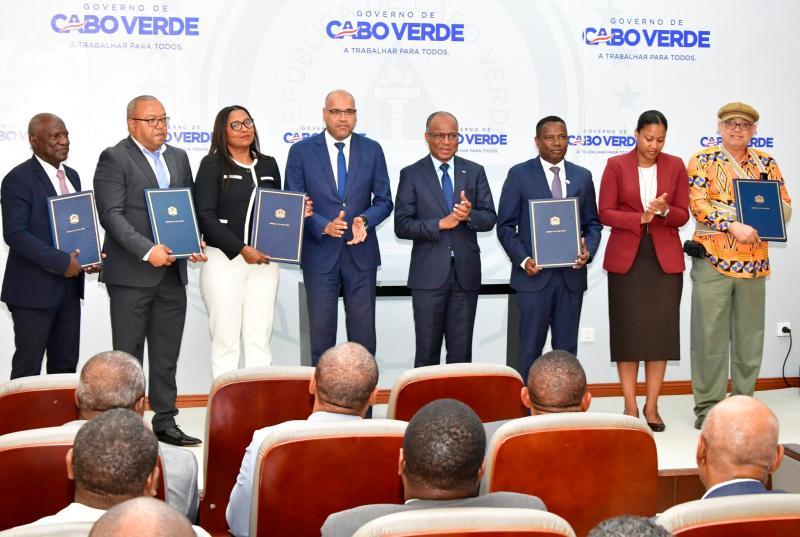Africa-Press – Cape verde. The Government and social partners signed today the second Strategic Concertation Agreement, which provides for an increase in the minimum wage up to 20 thousand escudos in 2027, an increase of 81% since its creation.
The second Strategic Concertation Agreement (2024 – 2026) was initialed, in the city of Praia, by the deputy prime minister, Olavo Correia, representing the Government, and by representatives of the unions and businesspeople, after the first meeting of the Council of This year’s Social Concert.
In terms of income and prices, the social partners made a commitment to the convergence of the national minimum wage for the public and private sectors from next year, with an increase expected to 17 thousand escudos.
Two years later, it is expected to increase this value to levels between 19 thousand and 20 thousand escudos, an increase of 81% since its creation in 2013, when it was 11 thousand escudos.
Asked by Lusa why the target is until 2027, while the agreement is to be in force up to a year before, in which there will be legislative elections, the Prime Minister, Ulisses Correia e Silva, replied that these are projections and that there are matters that will have continuity.
Increasing the proportion of the employed population covered by the contributory regime to 66% (currently around 45%) and the integration of domestic workers, guards and other similar professions into the unemployment benefit system are two other measures announced.
At the labor level, the document foresees, among other points, the revision of the labor code and the reform of social security later this year, while in terms of employment and employability, it plans to reduce the unemployment rate to levels no higher than 10%.
The agreement also provides for the commitment to eradicate extreme poverty by 2026 and reduce absolute poverty to up to 20% in that same year.
All measures are supported by a macroeconomic scenario, which foresees economic growth on an annual average of no less than 4.8%, inflation no more than 3% and public debt no more than 110% of Gross Domestic Product (GDP).
In his intervention when presenting the measures, the head of the Government, who chaired the meeting, highlighted the “success” in the negotiations with the remaining social partners, and said it was a “comprehensive agreement” and with a “broad social concern” .
“We have a commitment, a shared responsibility, to guarantee the success in the implementation of this agreement”, requested Correia e Silva, adding that a working group will be created with representatives from all parties to periodically monitor and evaluate its execution.
The president of the Cape Verdean Confederation of Free Trade Unions (CCSL), José Manuel Vaz, highlighted the “gains” of the previous agreement and stated that the document now signed is an “important instrument”, which has the cooperation of the International Labor Organization ( ILO) and the United Nations.
Despite considering the moment “unique and historic, the general secretary of the National Union of Cape Verdean Workers – Central Sindical (UNTC-CS), Joaquina Almeida, said, in a statement to journalists, that there are aspects with which she does not agree, namely the proposed revision of the labor code, which, he warned, will “make the world of work even more precarious” and promote unemployment.
Alexandre Pires, representing the chambers of commerce, highlighted the fact that the agreement embraces some of the businesspeople’s proposals and is an instrument that provides for stability and growth.
For More News And Analysis About Cape verde Follow Africa-Press






